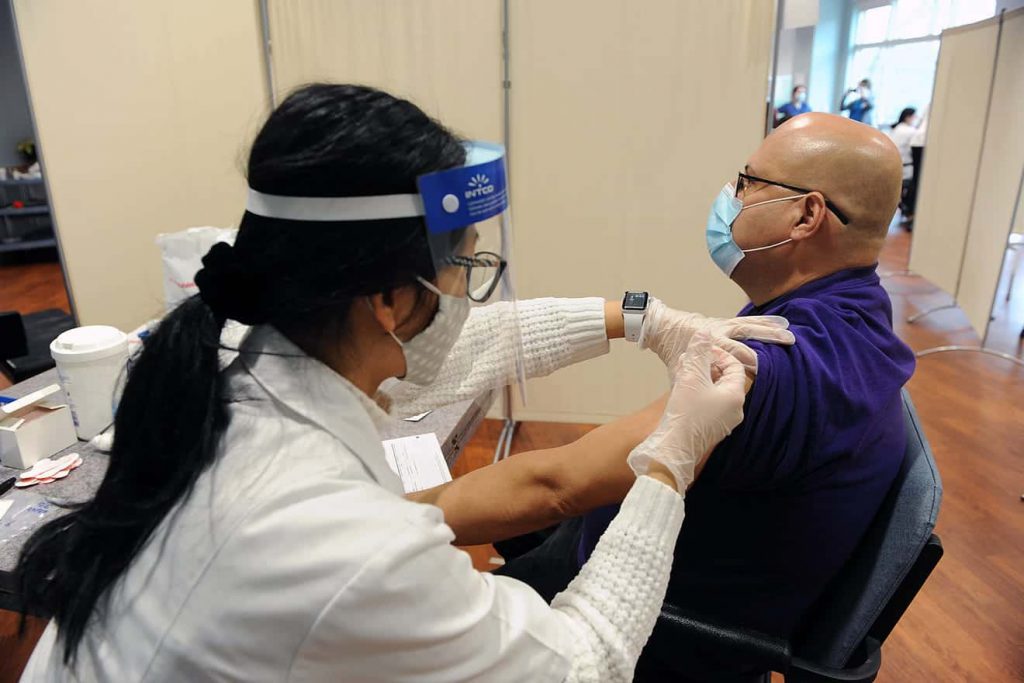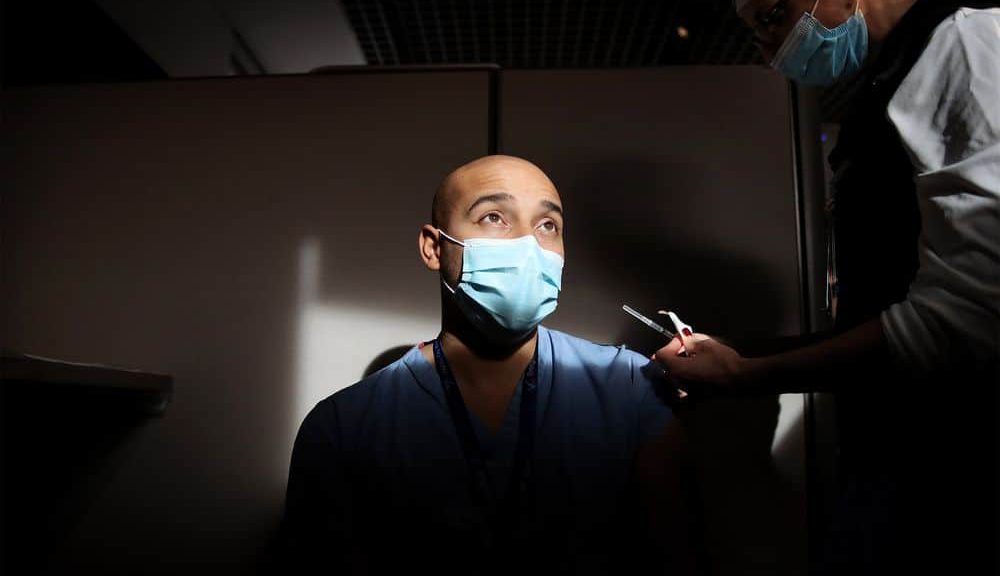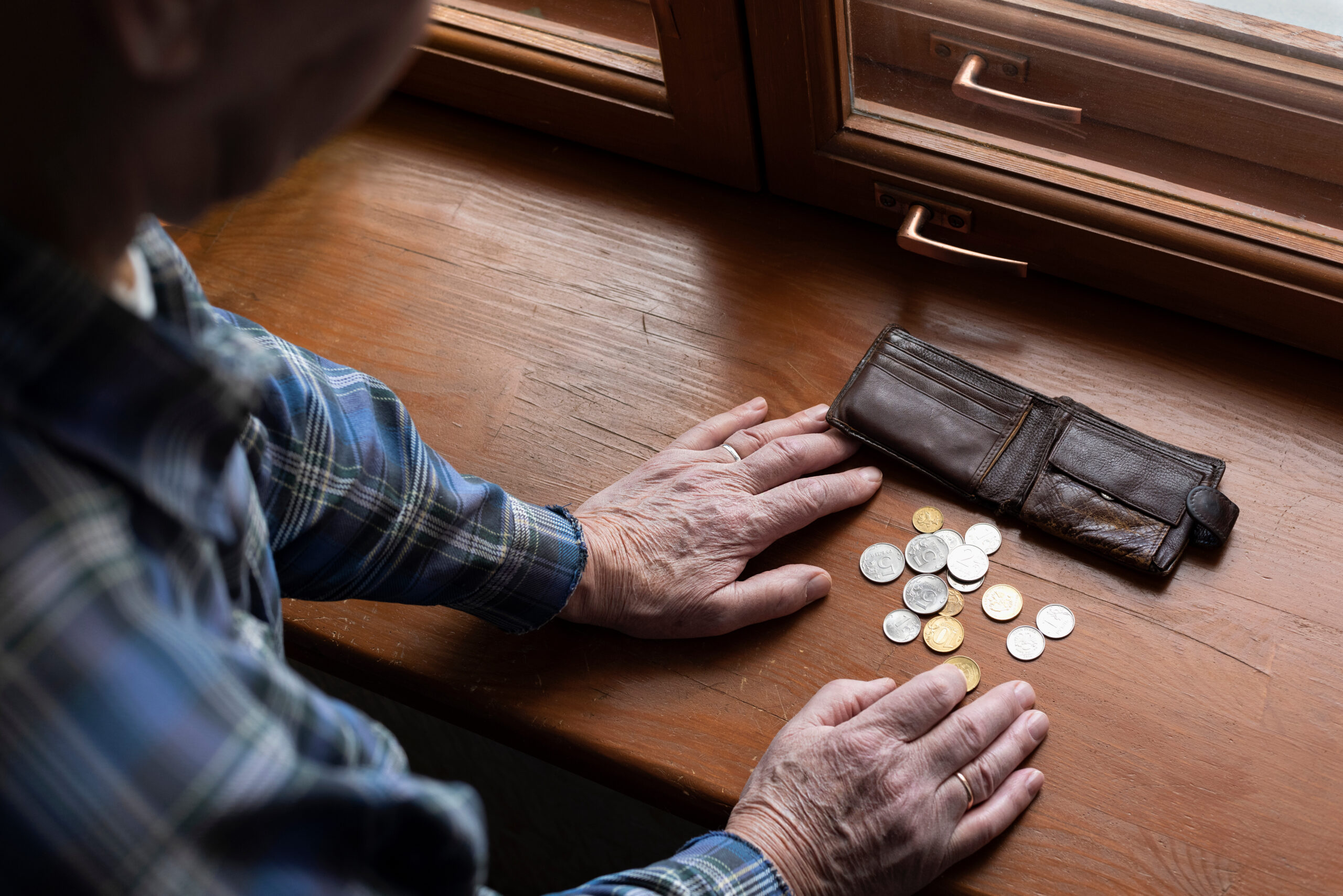Six weeks into Mass General Brigham (MGB) vaccination campaign, about 70-percdnt of its 80,000 workers have been immunized. But, according to a report by Bloomberg, the racial breakdown is cause for concern.
While 77-percent of White and 76-percent of Asian employees have been immunized, only 56-percent of Hispanic – Latino and 42-percent of Black employees have received shots. Of those who primarily speak a language other than English, the report finds the rate falls to 56-percent.
“This mistrust has been built up over more than 500 years, and we’re not going to solve it this month,” said Tom Sequist, MGB’s chief patient experience, and equity officer referring to systemic inequities ailing not only the healthcare industry, but other facets of American society.
Communities of color are less likely to trust the medical system because they have been mistreated and ignored for years, Sequist told Bloomberg.
“Some people may wait to see how other people handle the vaccines”, said Joseph Betancourt, senior vice president of equity and community health at MGB. “Those communities have also been hit the hardest, and people who had the virus may want to let others access vaccines first.”

According to a report by the Telegram & Gazatte, those who are most vulnerable and impacted by COVID-19, such as Black and Brown populations, are getting vaccinated at a far lesser rate than white populations, though the vaccine rollout is still in its early phases.
Recent numbers from the Kaiser Family Foundation showed that as of Feb. 1, 56-percent of those who have been vaccinated in Massachusetts identify as white, while only 4-percent identify as Black and 5-percent identify as Hispanic. 31-percent identify as multiracial.
The more than 60-million Hispanics – Latinos in the United States have been disproportionately affected by the coronavirus, and many are struggling with issues like a lack of knowledge about the shots, state vaccine websites that don’t have Spanish instructions, ways to find appointments in their communities and fears they could be targeted for immigration enforcement.
A bilingual call center has been established in Lawrence, a city with one of the highest concentrations of Hispanics -Latinos in Massachusetts (77 percent of the city population) – so residents can avoid the state’s registration site which can be hard to navigate, especially if English isn’t a person’s native language.
The uneven results at MGB in trying to ensure an equitable vaccine distribution show how difficult it will be to solve at a national level. Data show White people are being immunized at far greater rates than other racial and ethnic groups.
Ultimately, racism is the biggest challenge, Sequist said. And that fact should underscore vaccination efforts.
“It takes some courage, whether you’re a public-policy official, a state or federal government official to say actually yes, that’s the risk factor,” Sequist said. “It’s uncomfortable for many people to take that leap.”
Publisher’s Note: this story is an aggregate from Mass General Confronts Vaccine Racial Inequity Rooted in History
Cover Photo Credit: Craig F. Walker/The Boston Globe/Getty Images




